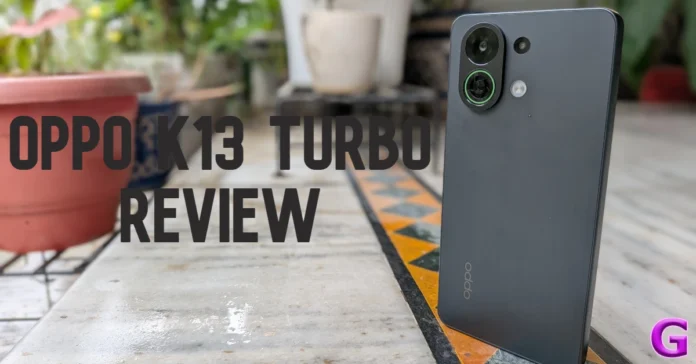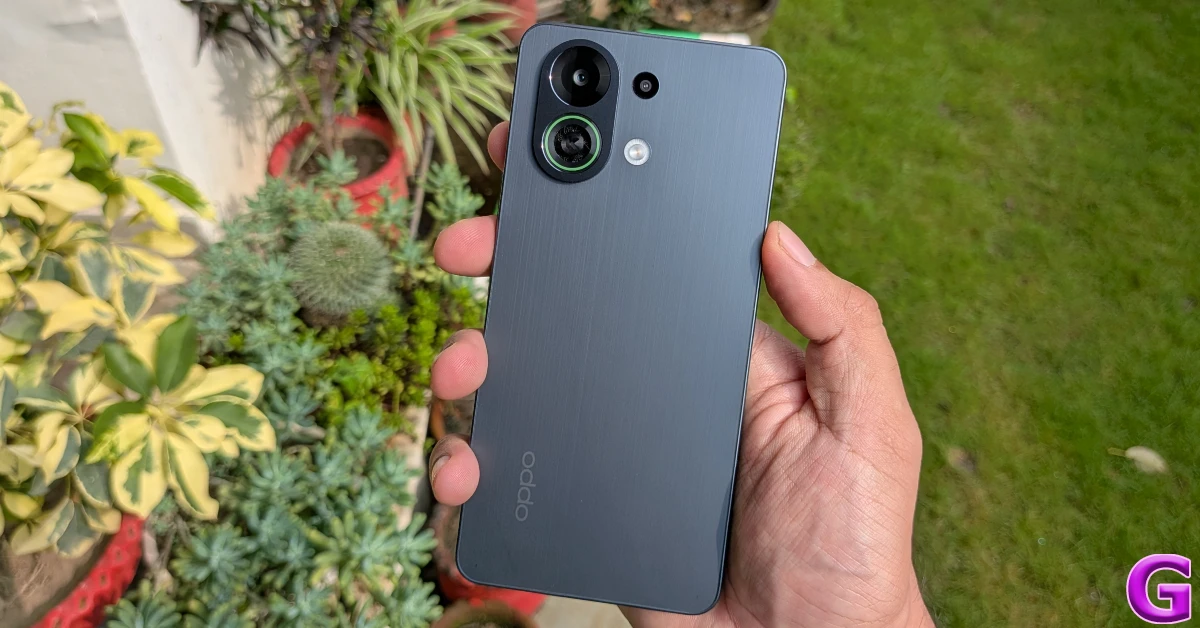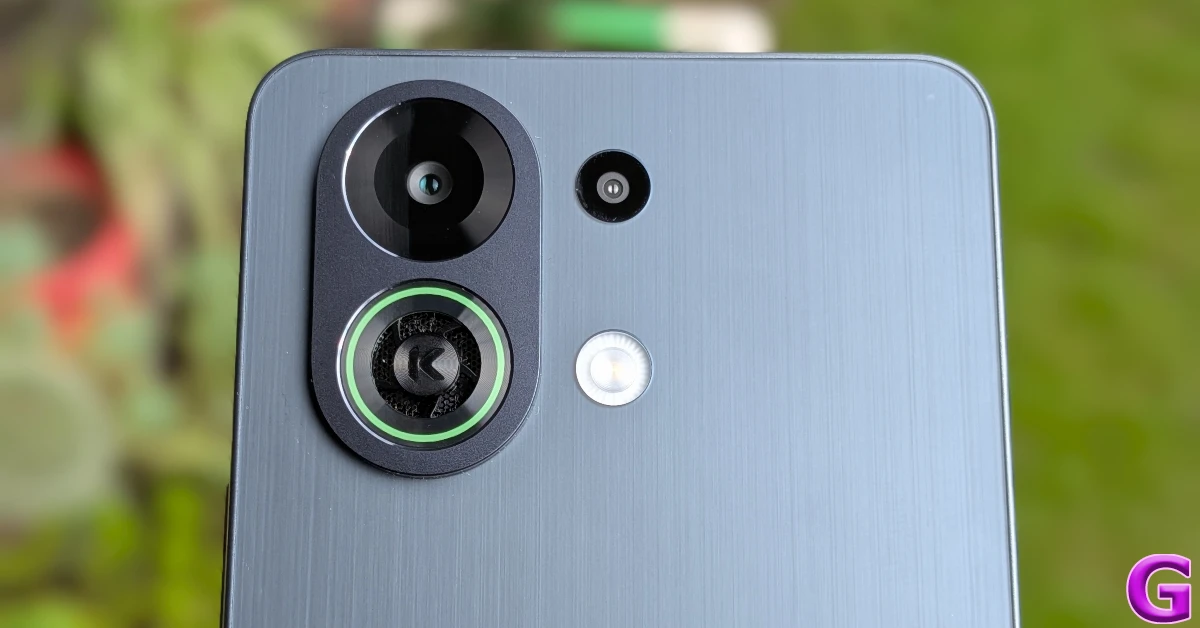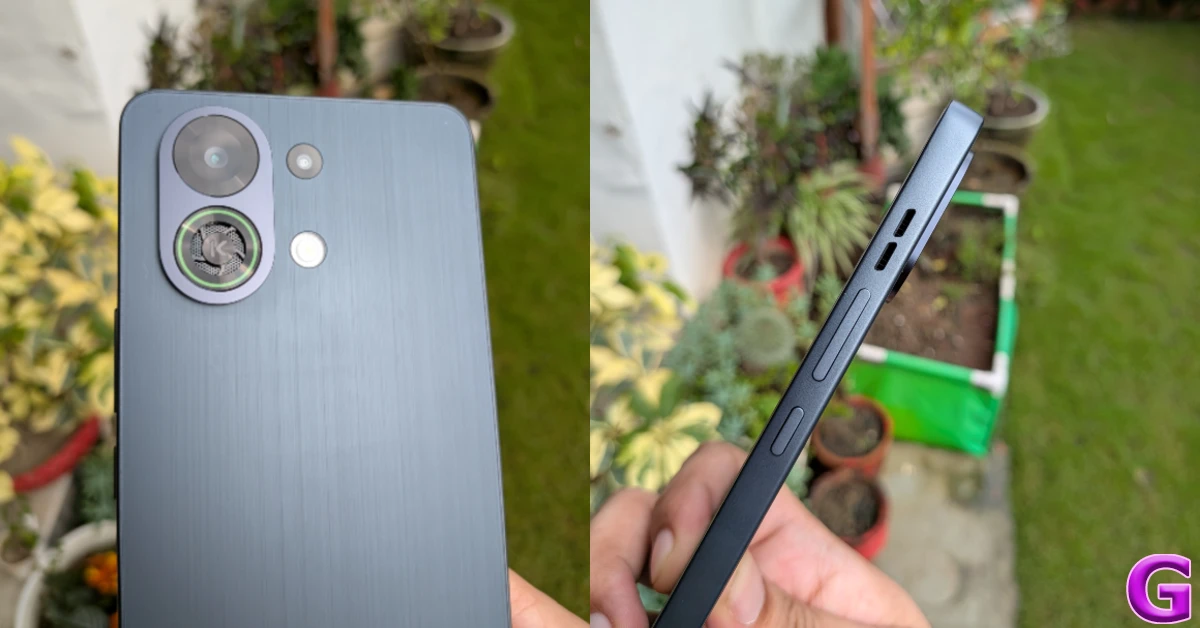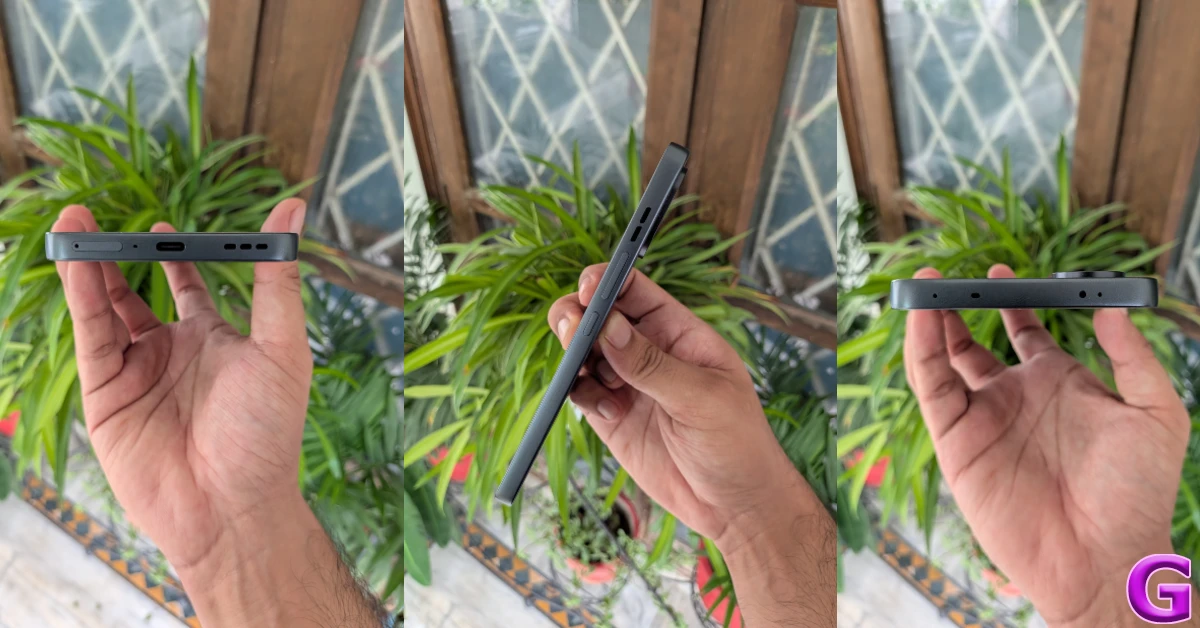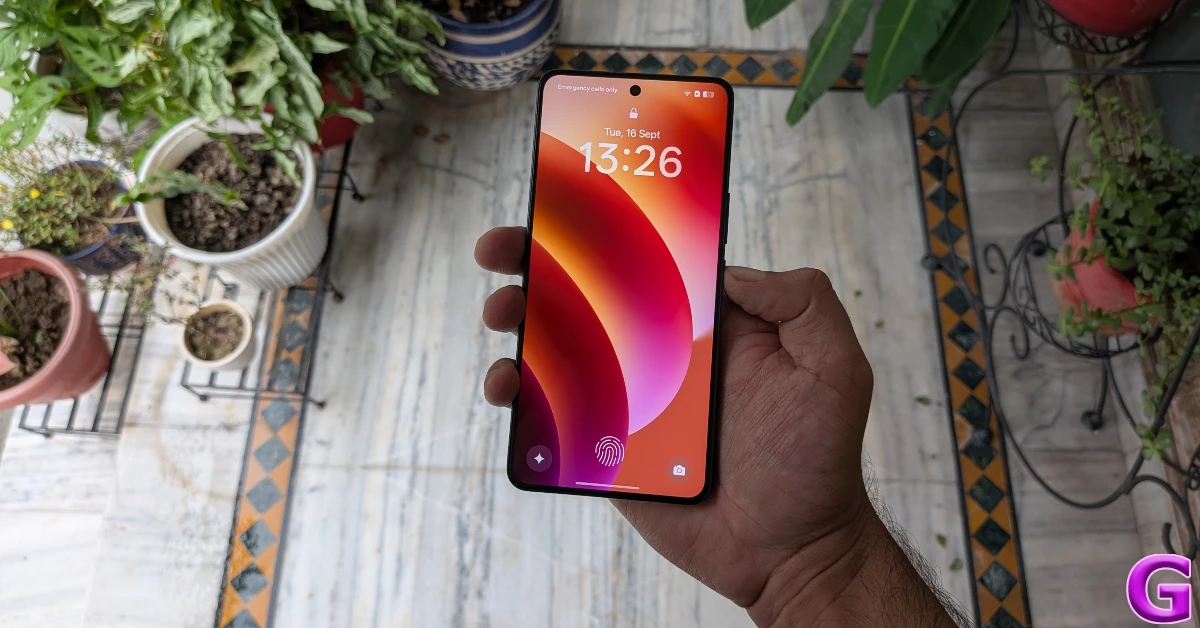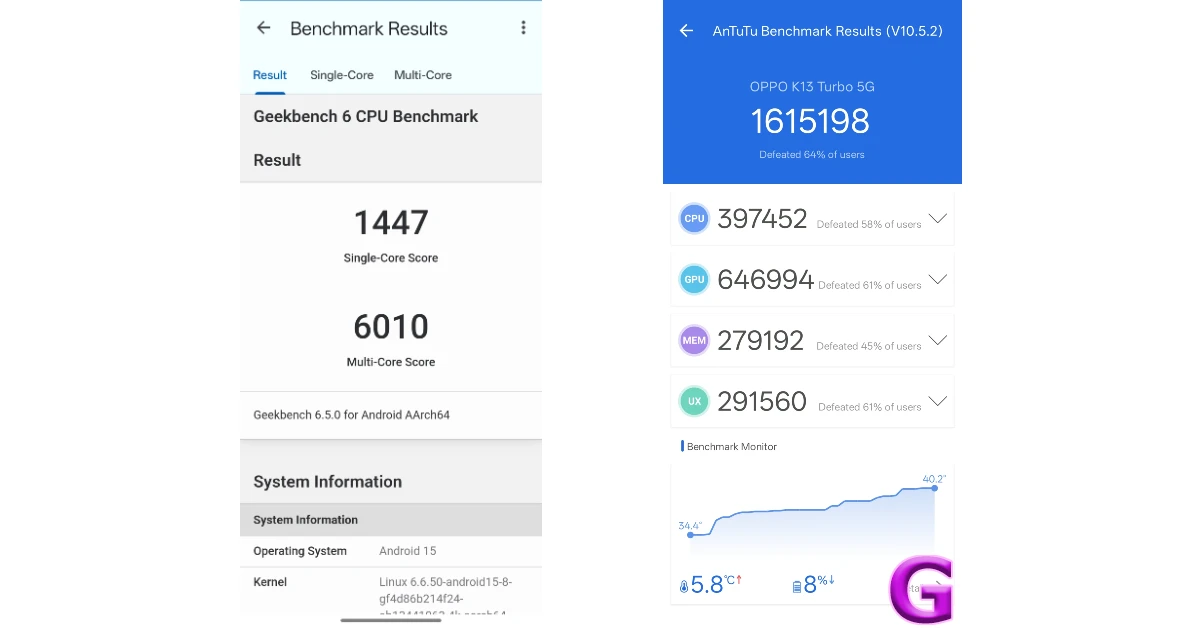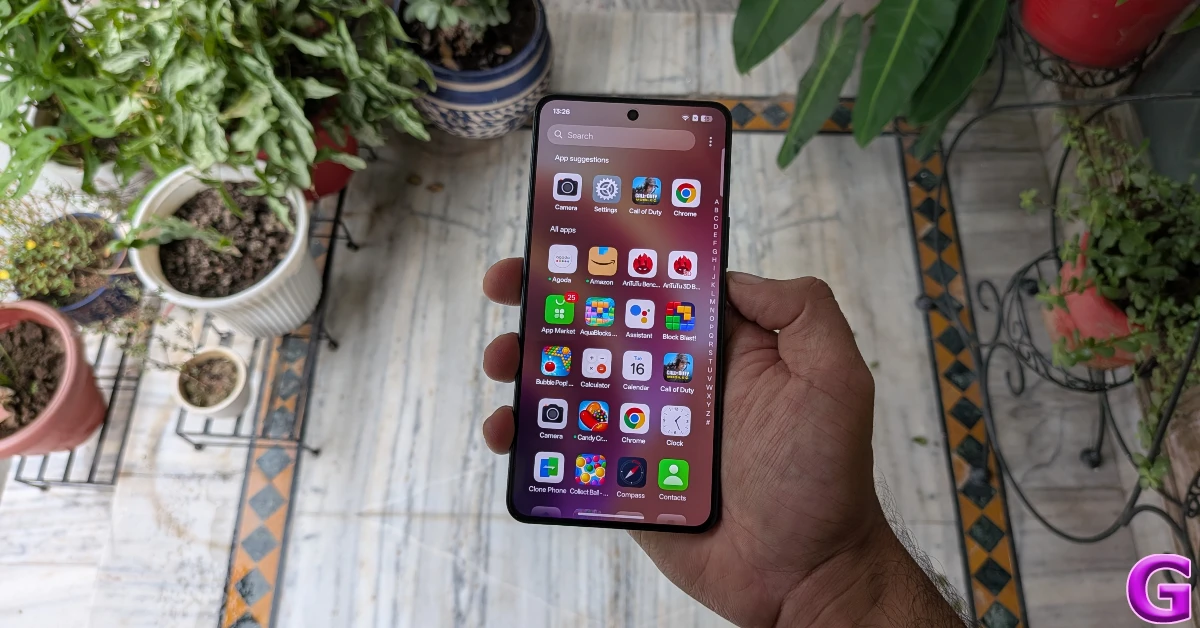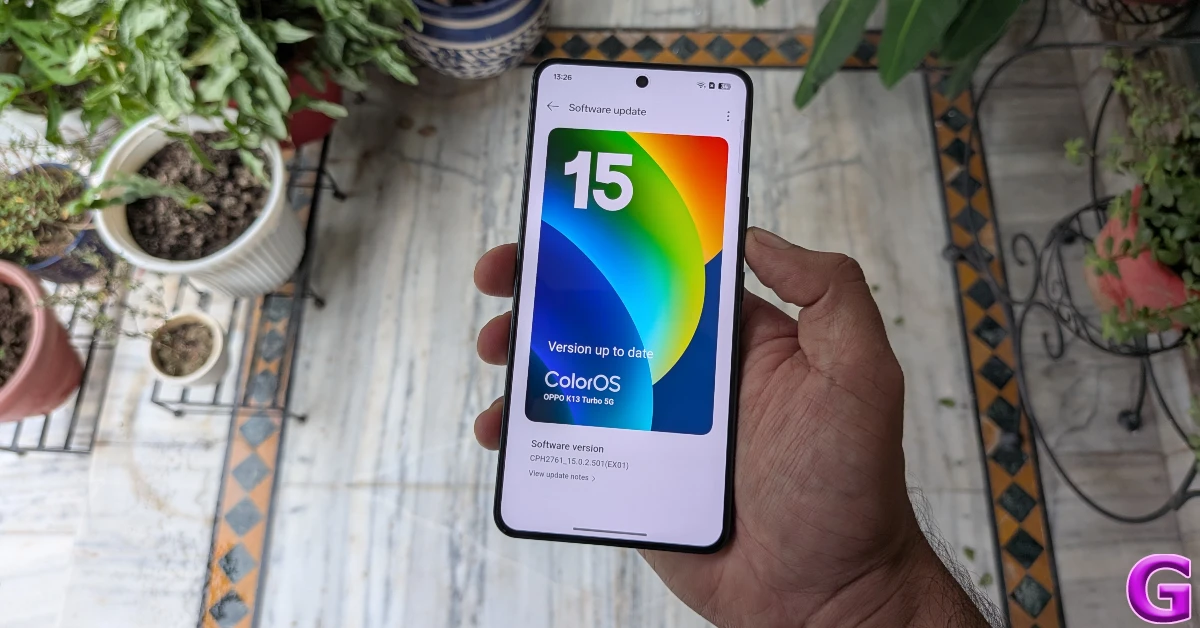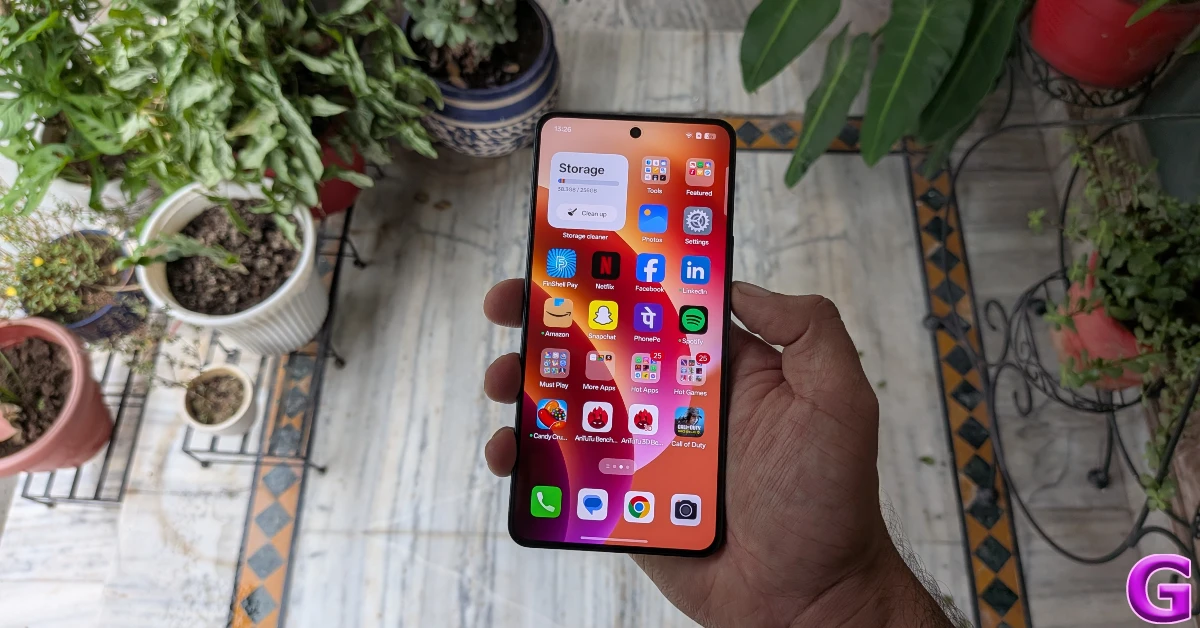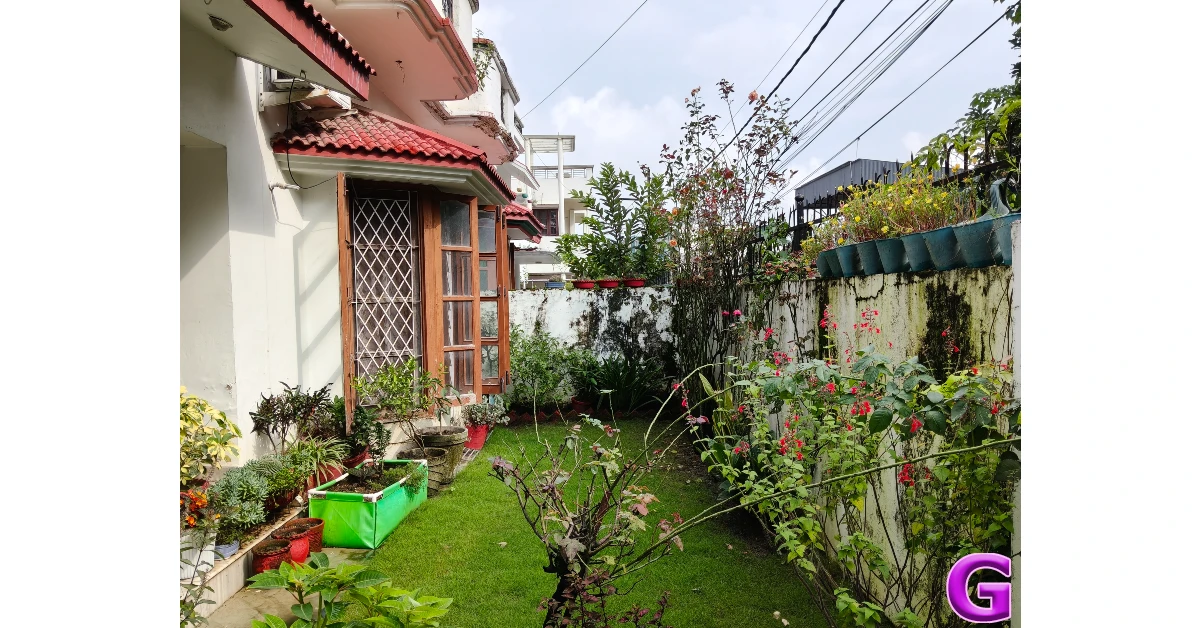This year, smartphone brands have quietly released some interesting and novel midrange gaming devices. Back in June, we reviewed the Infinix GT 30 Pro, which flaunts touch-sensitive shoulder triggers, giving gamers a slight edge in intense FPS battles. For those who prefer a little extra firepower, the Poco F7 (our review here) and iQOO Neo 10R (our review here) make great options. If it is efficient cooling you’re after, you will like Oppo’s latest offering. The K13 Turbo has an active cooling fan that creates steady airflow and dissipates the internal heat with ease. To check out how well it works, we used the smartphone for a week. Here is our comprehensive review of the Oppo K13 Turbo.
Read Also: Vivo Y31 series with a 6,500mAh battery launched in India
In This Article
Oppo K13 Turbo 5G Review: Design and Display
First, let’s take a look at what you get inside the box.
- Smartphone
- 80W power adapter
- USB Type-A to Type-C cable
- Silicone cover
- Fan cleaning brush
- SIM ejector
- Quick start guide
The design of the K13 Turbo is pretty straightforward. The flat back panel has an all-plastic build. The smooth, brushed finish gives it a nice in-hand feel. The oval-shaped camera cutout is placed in the top-left section of the back panel. It does not cause any significant wobble when the device is placed on a flat surface. This cutout houses the main camera and the cooling fan. Right outside this cutout lies a monochrome lens and an LED flash.
The cooling fan is covered in a mesh filter that protects its blades. The green ring around its chassis glows in the dark. The 0.1mm blades can reach a speed of 18,000RPM. The air sucked in by the fan is pushed out through the vents placed adjacent to it. Due to this passage, this phone isn’t completely dust-proof. However, it is rated IPX8/IPX9 for water protection. The device is immersible in water up to 2m for 30 minutes.
The plastic frame houses the volume rocker, side button, and air vents on its right edge. The SIM tray, primary microphone, USB Type-C port, and primary speaker are placed at the bottom. Up top lie the IR blaster, noise-cancelling microphone, and secondary speaker.
The 6.8-inch AMOLED display has a 120Hz refresh rate and can reach a peak brightness of 1,600 nits. It is able to maintain legibility under direct sunlight. The touch response is very smooth. The wide aspect ratio of the display makes it ideal for gaming. It is surrounded on all sides by slim and uniform bezels. The optical fingerprint scanner is snappy and accurate.
The media streaming experience on this smartphone is delightful. The 1,280 x 2,800p display produces punchy colours and sharp visuals. The contrast levels are quite tasteful and the images have very rich tones. The dual speaker setup produced a loud and well-balanced audio output.
Oppo K13 Turbo 5G Review: Performance and Cameras
At the heart of the K13 Turbo lies the MediaTek Dimensity 8450 chipset. This is a respectable processor for a smartphone priced under Rs 30,000. The device is equipped with 8GB RAM (LPDDR5X) and comes in 2 storage variants (UFS 3.1):
- 128GB: Rs 27,999
- 256GB: Rs 29,999
We ran a couple of benchmark tests on the device. Here is how it performed:
- Geekbench 6: 1,447 (single-core) | 6,010 (multi-core)
- AnTuTu 3D: 1,615,198
The smartphone crushes routine tasks like calling, instant messaging, emailing, web browsing, navigation, and media streaming. Juggling multiple apps at once presents no problems whatsoever. The background apps are optimised to use minimal resources. Even though the smartphone uses UFS 3.1 storage, apps do not take a long time to load. The haptic motor produces a well-tuned vibrational feedback.
The phone’s forte is its exquisite gaming performance. It is able to run titles like Call of Duty and BGMI at 120fps with medium graphics. Increasing the graphics settings means settling for a lower frame rate. We did not come across a single frame drop during our time with the device. The gameplay remained smooth and consistent.
The active cooling fan isn’t just a gimmick. It manages to dissipate the heat around the one part where smartphones warm up quite quickly – the camera panel. You can turn on this fan from the Quick Settings, but it automatically springs into action whenever you launch a game. The noise produced by the fan doesn’t amount to a distraction. Aside from this fan, the smartphone rocks an amazing 7000mm² vapour chamber cooling system. We did not notice a rise in internal temperature even after 50 minutes of continuous gaming.
OS duties on the K13 Turbo are handled by the Android 15-based ColorOS 15. Oppo has promised 2 major OS upgrades and 3 years of security patches for this device. There are a lot of bloatware apps on this device. We recommend taking the time to uninstall them before using the phone.
ColorOS 15 borrows a lot of design elements from iOS 17. For instance, it uses clever animations to expand the punch-hole cutout on the display into a Dynamic Island-style pill. This capsule can display live alerts from food delivery apps as well as offer controls for music playback, timer, hotspot, and other functions. The design of the settings panel is also heavily influenced by iOS 17.
The K13 Turbo has some interesting AI features that deserve to be mentioned. The native photo editor supports AI Eraser 2.0, AI Unblur, AI Reflection Remover, and AI Clarity Enhancer. There’s native support for Circle to Search and Gemini Assistant as well.
There’s a massive 7,000mAh battery pack under the hood of this smartphone. With moderate usage, you can get up to 2 days of battery life. On heavy usage days, we were left with a 25-30% charge in the tank. The battery pack supports 80W wired charging. The power adapter provided in the box can fully charge the device in an hour.
The rear camera panel houses a 50MP primary shooter. There is no ultrawide lens on this phone. The primary shooter takes good pictures in outdoor daylight conditions. The images showcase vivid colours and tasteful dynamic range, even though they appear a tad oversharpened. In limited lighting conditions, the Night Mode does a good job illuminating the subject but struggles to completely eliminate the noise.


Portraits taken by the K13 Turbo are vibrant and well-focused. The smartphone does a decent job of separating the subject from the background. The intensity of the background blur isn’t too strong, but it gets the job done. The 16MP front-facing camera takes warm and rich selfies. It can record 1,080p footage at 30fps. Meanwhile, the rear camera can record 4K and 1,080p videos at 30/60fps.
Read Also: Anime Card Clash Codes (September 2025)
Final Thoughts
After using the K13 Turbo for a week, we can comfortably say that we’re big ‘fans’ of the device. The MediaTek Dimensity 8450 SoC is able to unlock high frame rates in titles like Call of Duty Mobile and BGMI. The active cooling fan, along with the passive 7000mm² vapour chamber cooling system, does a great job of dissipating the internal heat and keeping the phone’s temperature at an acceptable level.
Buying a midrange gaming smartphone means making a few tradeoffs in other aspects. In the K13 Turbo, you’re sacrificing the ultrawide lens for more power and an exquisite cooling system. We don’t mind this too much, as we would easily prefer more power over an ultrawide sensor that captures soft images. The one aspect where this smartphone does not leave any stone unturned is the battery performance. The 7,000mAh battery pack holds enough juice to last you a couple of days.
Pros
- Big display
- Cooling fan
- Great gaming performance
Cons
- No ultrawide lens
- Contains bloatware


